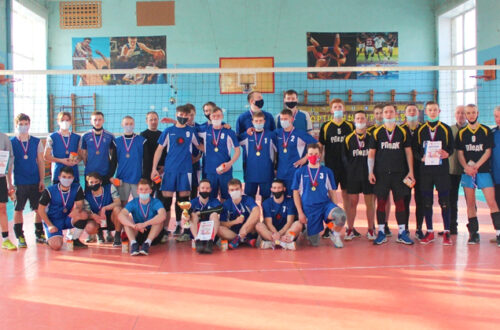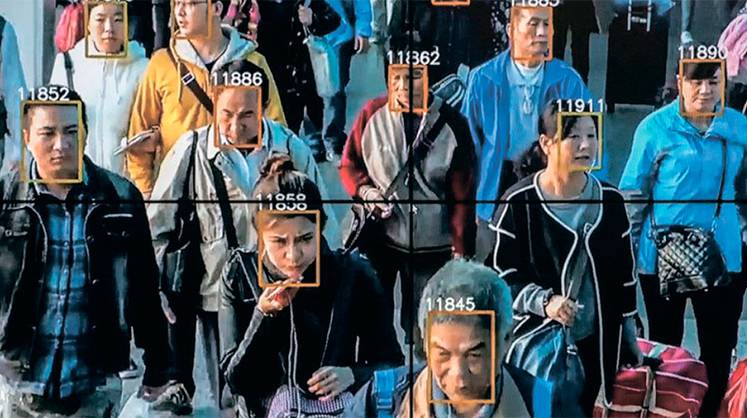
News: I see everything, I hear everything, I will tell everyone everything – Expert – Economic and political news. News today. (October 29, 2018)
China. China news. Interesting facts about China. Rating of thinkers and philosophers of China. Ancient China. China today. Economy of China. Expert forecast.
I see everything, I hear everything, I will tell everyone everything
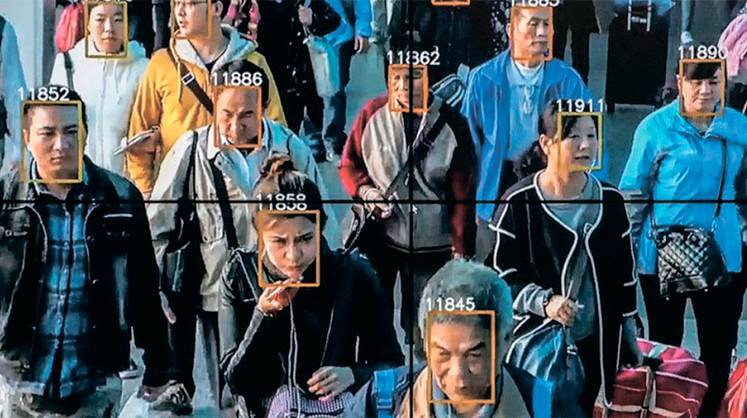
In the summer of 2018, the Zhao family from Wenzhou, in eastern China, prepared to celebrate their son's admission to the prestigious Beijing Institute. The young man successfully passed the Chinese analogue of the Unified State Examination, successfully passed the competition and was confident in his enrollment. However, the university said that although Zhao is one of the best in exam results, it is impossible to accept him. The reason is the poor social rating of his father.
As it turned out, Zhao Sr. was once a loan guarantor. The borrower stopped repaying the loan, the bank began to look for guarantors. In the end, the matter went to court, which recognized Zhao as a debtor. According to the decision of the Supreme People's Court of the People's Republic of China, local courts have the right to create a black list of debtors and limit their spending on luxury consumption. Including air travel, the purchase of expensive cars and paying for the education of children in expensive educational institutions.
The story ended happily: the father urgently paid off his debts, notified the court, which excluded him from the black list, and the son was admitted to the institute. He is probably doing well now.
Local media, discussing this case, wondered how fair it was to make sons answer for the sins of their fathers. Opinions, as is usually the case, were divided, but everyone agreed on one thing: no matter how ambiguous this story sounded, the decision not to let my son go to school turned out to be effective. Debts that had been waiting for settlement for two years were paid off.
This case is not so much about finances and the actual credit history of an individual, but about the social rating system being built in China, an attempt by the state to construct a society according to Confucian canons.
Don't dare, can't, don't want
Several millennia ago, Zi Gong asked Confucius what was more important in government – trust (信), food (食) or army (兵). Confucius replied that if you choose one thing, the most important thing is trust. In other maxims, Confucius also compared a person who cannot be trusted to a chariot without an axle that cannot be ridden.
The hieroglyph 信 (xin) present in the statements of Confucius and the semantic shades of “faith”, “trust”, even “reliability” associated with it are the key to understanding the system of social rating (社会信用, shehui xinyong) in China. Calque from the English literal translation of the name of this system as a kind of “social credit” (social credit) is relatively narrow: the system created and developing in China is not only and not so much about the financial solvency of the subject (person or enterprise), but rather about his social status, worthiness” in the social sense, assessment by society.Of course, financial creditworthiness is the most important part of this rating. But no less important are social reputation, integrity (诚信, chengxin) and mutual trust, the ability to fulfill one's obligations, to be socially responsible and honest.
Describing an ideal society without corruption, Chinese experts say that a system must first be created in which officials not dare be corrupt, then the system in which they can not be corrupt, then the system in which they do not want be corrupt. The system of social rating should evolve in approximately the same way: “don’t dare” – to prevent misbehavior of all social actors through punishment, “can’t” – ensure the impossibility of bad behavior, “don’t want” – to introduce moral and ethical imperatives into society, thanks to which people they don't want to break the rules. In the view of Chinese officials, an artificial intelligence-based system should ideally run society autonomously, ensuring efficiency, morality and shared prosperity.
The social rating system is quite openly described in the documents and has a roadmap for implementation. The mechanisms and goals of creating a social rating system are disclosed primarily in the Decree of the State Council of the PRC adopted and published in June 2014. The government sees 2014–2020 as the project implementation period (but in reality, it seems that its operation will be extended deep into the third decade of the 21st century). The multi-page document, saturated with references to the ideology of building socialism with Chinese characteristics, nevertheless shows how a harmonious society is seen in the Celestial Empire.
The purpose of the system is to strengthen the reputation, integrity of government, business, society, confidence in the legal system. Social troubles are also listed, which stem from a lack of mutual trust of citizens. Among them are both quite specific financial and economic problems (tax evasion, the production of counterfeit goods, unsafe products and medicines, financial pyramids), and a critical view of society (the absence of a system of rewards and punishments for deceiving trust, the absence of a public position that would appreciate keeping promises, academic violations in the form of plagiarism and deceit).
This implies methods for correcting the situation: first of all, it is the collection and aggregation of information about the subject, the stimulation by socio-economic methods of his worthy behavior and the punishment of the unworthy, the use of an improved credit scoring mechanism (due to the inclusion of data on public behavior in it) to evaluate any transactions, improvement of the moral and ethical atmosphere in society.
Of course, financial creditworthiness is the most important part of this rating. But no less important are social reputation, integrity (诚信, chengxin) and mutual trust, the ability to fulfill one's obligations, to be socially responsible and honest.
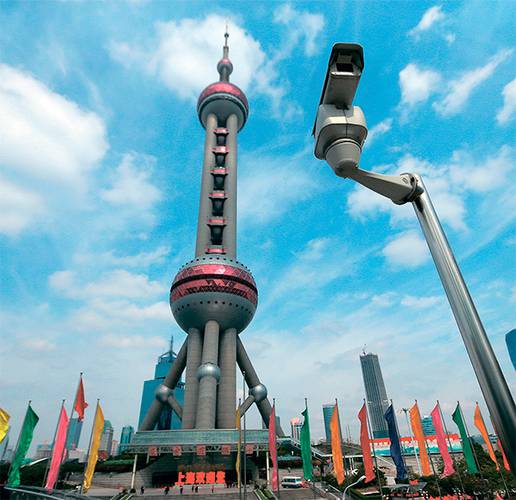
Describing an ideal society without corruption, Chinese experts say that a system must first be created in which officials
not
dare
be corrupt, then the system in which they
can not
be corrupt, then the system in which they
do not want
be corrupt. The system of social rating should evolve in approximately the same way: “don’t dare” – to prevent misbehavior of all social actors through punishment, “can’t” – ensure the impossibility of bad behavior, “don’t want” – to introduce moral and ethical imperatives into society, thanks to which people they don't want to break the rules. In the view of Chinese officials, an artificial intelligence-based system should ideally run society autonomously, ensuring efficiency, morality and shared prosperity.
The social rating system is quite openly described in the documents and has a roadmap for implementation. The mechanisms and goals of creating a social rating system are disclosed primarily in the Decree of the State Council of the PRC adopted and published in June 2014. The government sees 2014–2020 as the project implementation period (but in reality, it seems that its operation will be extended deep into the third decade of the 21st century). The multi-page document, saturated with references to the ideology of building socialism with Chinese characteristics, nevertheless shows how a harmonious society is seen in the Celestial Empire.
The purpose of the system is to strengthen the reputation, integrity of government, business, society, confidence in the legal system. Social troubles are also listed, which stem from a lack of mutual trust of citizens. Among them are both quite specific financial and economic problems (tax evasion, the production of counterfeit goods, unsafe products and medicines, financial pyramids), and a critical view of society (the absence of a system of rewards and punishments for deceiving trust, the absence of a public position that would appreciate keeping promises, academic violations in the form of plagiarism and deceit).
This implies methods for correcting the situation: first of all, it is the collection and aggregation of information about the subject, the stimulation by socio-economic methods of his worthy behavior and the punishment of the unworthy, the use of an improved credit scoring mechanism (due to the inclusion of data on public behavior in it) to evaluate any transactions, improvement of the moral and ethical atmosphere in society.
In the geographical and industry context, the social rating system is a set of databases on individuals and legal entities that are supported and developed by local authorities (cities) and industry departments. When developing the rules for managing these information systems, the document described above is taken as a basis; Depending on the region, the tactical goals of the “management of society” vary, the strategic goal – creating an atmosphere of trust and harmony in society – is unchanged.
Cameras in Shanghai. The police can establish a whereabout for two seconds, check the criminal story, get the data of any suspect caught in the lens of the video camera
Total collection of information
The collection and aggregation of information is the most important component of the system. The document prescribes the creation and mutual integration of information systems (databases) by regions, by departmental affiliation and at a nationwide level. The general system of social rating will fall from the most diverse spheres: medicine, electronic trade, sports, public procurement and, of course, from the security agencies. The subjects are by no means not only individuals, but also state bodies, commercial and non -profit organizations.
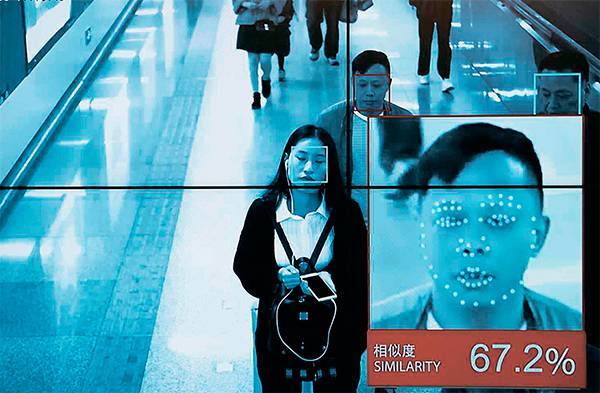
In this sense, the system of social rating combines two components: the credit history and background itself in terms of relations with the law (list of administrative and criminal offenses) and society. In relation to private individuals, the database is largely digitized in accordance with the requirements of the time, but for a long time existing in the PRC, the totality of “personal affairs” of citizens.
According to the personal affairs of citizens (folders-dosier) adopted from the first years of the PRC, the Personal Affairs of Citizens are held by state departments from school. All information about a person is entered in the dossier: education and assessments, marital status, reviews from organizations (school, university, employer), information about political views, attitude to religion, etc.A personal file follows a citizen and is stored either at the enterprise (primarily by the state) both in the department or in specialized institutions. Information in the personal file of a citizen is available to his chiefs and officials from competent departments.
After the transfer of objective and characterizing data about a person into digital form and the creation of volumetric police databases, it became possible to “tag” a person. In the fall of 2018, a person who calls himself an employee of the public security system appeared in Chinese social networks, in which he told in detail how police databases group citizens. In addition to the obvious groups of “terrorists and sympathetic to them”, “prone to violence”, “members of the gang”, “associated with drug trafficking”, police bring into separate groups of dissidents, supporters of the independence of Tibet and Sinjiang, victims and organizers of financial pyramids, retired military, etc. The attention of the organs is also attracted by “persons adhering to extreme views”, persons who are dissatisfied with the country and expressed their opinion anywhere, who took part in public speeches, as well as persons related to foreigners.
It is problematic to confirm the reliability of the list, but it looks convincing. Due to its volume, almost any citizen of the PRC can be attributed to a particular category or subkategoria. The author of the post claims that the databases are constantly replenished and updated with each use of a citizen's identity certificate.
The portrait of a citizen is also formed by the history of his financial and economic activity, online transactions, relations with banks. Information about this is both in banks and online retailers. It is especially worth mentioning the created Alibaba Group system for evaluating the credit rating “Jima Xinyun” (芝麻 信用). This private structure has a colossal amount of information about consumer behavior and their transactions, but in fact it is rather a loyalty program, and not a real credit bureau.It assigns a rating to the user based on the data mentioned above (social media activities, online purchases, use of the Alipay system, presence or absence of obligations, probably documented facts of violation of the law, etc.).
Participation in this system is voluntary, although there are more advantages for a conscientious buyer than disadvantages. From the point of view of relations with the state, there are no negative consequences for the user from a bad rating in the Zhima Sinyong system.
The behavior and activity of citizens are also monitored by a street video surveillance system. By 2020, the documents of the State Committee of the People's Republic of China for Development and Reforms (SCRR) prescribe to ensure 100% video surveillance coverage of all significant areas. It is indicated, in particular, that there should be no blind spots in the supervision of key points on main roads, in settlements, and other important places. Cameras with a 360-degree view are now being installed in China almost everywhere and as densely as possible: on city streets and squares, intersections, traditional gathering places, near government offices, railway stations, monuments, hospitals, tunnels, parks, agricultural markets and shopping centers.
The current name of the CCTV project is Xueliang, 雪亮 (sharp). It is based on the Tianwang (天网) program, which was literally translated in the Western press as Skynet. Iron is only part of the story. The software already exists and is being improved. In 2014, in Shenzhen, several American university graduates founded the Yuntian Lifei (云天励飞) company, which develops artificial intelligence systems. This is how Sky Eye (天眼, tianyan) was born, a self-learning face recognition system using street video surveillance. Now it covers all of Shenzhen, including the airport. The police within two seconds can establish the location, check the criminal history, obtain the data of any suspect caught in the lens of a video camera.
The developers lead a few stories as an example. During the celebration of the holiday of spring in 2017, the police reported the loss of a three -year -old boy. For several hours, law enforcement agencies worked with a person recognition system to identify the suspect and lay the trajectory of his movement. They managed to find a criminal along with the boy on board a high -speed train heading to the city of Udin. It was in this city that the criminal was detained, and the child was returned to parents. The investigation took 15 hours.
The second story. The company's engineers, at the request of the local police department, modified the system to solve the problem of theft of bicycles. As the first suspect, a young man was introduced into it, who was previously caught more than once for this occupation. The system began to automatically monitor him and record all his actions: this was how the bicycle buyer was identified, and then other accomplices. In total, 318 criminals were detained as a result of a four -month operation.
The third story became extremely popular both in local and foreign media. The company installed a video surveillance system at one of the intersections of Shenzhen. The system identified the transition of the road to the red light, recognized the faces of the violators, compared their personalities with the police database and brought a photograph of violators with their names and part of the personality certificate to the street-core. The data also appeared on the police department. Within three months of operation, the number of lovers to cross the street to red light fell by eight percent. Since the end of 2017, these systems began to be mounted in other regions.
Information is collected in relation to corporate entities. The list of those interested in the state includes, for example, data on excessive pollution by the environmental company, violations of labor and sanitary legislation, paying taxes, salary debts and other payments.The most persistent violators can be called seriously unreliable, and those with honors in production and social life can be rewarded in a variety of ways.
In the view of officials, an artificial intelligence-based system should manage society autonomously, ensuring efficiency, morality and common prosperity.
Whips and gingerbread
The collected information forms the basis for the carrot and stick system. As is usually the case, the whip is a much more effective and specific technique. It is based on all sorts of black lists – databases that contain information about misconduct and deviant behavior of individuals by areas, industries and regions. All socio-economic activity is assessed. For example, companies and government agencies should, in theory, check an individual's social ranking data before granting them an entrepreneurial license when they are hired or promoted.
The two most prominent nationwide blacklists are the Judgment List and the Transport Violators List. The first list is a list of unexecuted judgments and violators on them. It is this list of people who do not comply with court decisions that caused the problems of the Zhao family, which was discussed at the beginning of the article. The information basis of the list is the China judgments online platform launched in 2013. There are hundreds of thousands of them, while in the early 2010s only 20% of sentences were actually executed. In 2015, the Supreme People's Court ruled that those who persistently do not comply with court decisions are limited in a number of rights – from a ban on traveling on planes and luxury trains, renting expensive real estate to a ban on sending children to expensive schools. According to the press, as of mid-2018, 11 million people are banned from flying, and four million from traveling by train.
This list is now being integrated with the databases of financial and stock regulators of the PRC, the database of corporate registrations, and the Zhima Xinyong credit rating system.Thus, persons from the black list cannot buy securities or take loans before the execution of a court order. Even corporation managers are included in the list. For example, Jia Yuetin, founder of LEECO, has been on the black list since December 2017 in connection with financial violations.
The publication of such lists is already a measure of moral and psychological impact in itself. Data on the defendants in the black list, primarily about companies, is disclosed on the website Credity.gov.cn. Anyone can see the “red” and “black” lists of companies (in the red list of the company that confirmed trust and reputation, in black – lost confidence). The site publishes the name Blacksmors, their number in the Unified State Register of Legal Entities, the number and essence of the violations. Enterprises with a negative history are also included in the list of “key” subjects for administrative inspections, a list for restricting access to state orders and state financing. There is also the concept of “seriously unreliable”, where corporations that undermined state interests fall. For good behavior, the company, on the contrary, can receive various preferences from the state. Volunteering and charity helps to correct the rating. Separately, from the Black List of violators of court decisions, there is a punishment mechanism for transport violations, fully enforced from May 1, 2018. These are black lists of passengers who in one way or another violated the rules of behavior in transport. In the most serious cases, the defendants of the list can be completely banned by transportation for a period of up to one year. In addition to the above, there are black lists both in regions and in individual industries. For example, there is a list of companies – violators of environmental legislation or a separate list of companies that were “famous” for violations of safety requirements. There is a black list of patients – persons who attacked doctors or humiliated them.But no matter what list the violators are on, the trend is to publicly “shame” them as much as possible (on the website or in the press) and get the situation corrected. A serious punishment for businesses is a ban on entering certain markets or engaging in a particular professional activity, and, just like for individuals, prohibitions on excessive and luxury consumption. This looks logical, because if a company has the funds to buy expensive equipment, why can't it pay its legal debts?It is characteristic that Chinese officials are also beginning to appeal to the social rating system in relation to foreign companies. On April 25, the National Civil Aviation Administration of the People's Republic of China sent letters to dozens of foreign airlines demanding that they correct maps on websites and on planes that list Taiwan as a separate state (according to Beijing, Taiwan is an integral part of China).
The letter addressed to the American company United Airlines got into the Western press. In it, Chinese officials write that the administration will take appropriate action in accordance with the paragraphs of … the Interim Civil Aviation Rating Management Rules, make a record of your company's serious dishonesty, and take disciplinary action against the company in accordance with section 3 of these rules. .
As can be seen from the letter, the controlling authority of the PRC refers to the terms honesty / dishonesty, trying to educate the company, while threatening to use very specific measures of influence. But purely propaganda “shaming” measures would be enough: the Chinese press and bloggers can instantly launch persecution of an objectionable enterprise or person.
The mentioned section 3 says that the act of serious breach of trust can lead to more frequent inspections, and the record of this incident will be made not only on the specified industry platform, but also in nationwide systems.
As a result of the compromise reached, the airline stopped referring to Taiwan as a separate state, although at the same time, the indications of PRC/China were not added to the names of cities on the island.
Social rating systems are gradually being introduced by regions. The Beijing Pilot Law came into force in May 2018 and is mainly aimed at countering fraud by companies. According to the Beijing press, with the launch of this law, the authorities will seek to correct the behavior of more than ten thousand dishonest enterprises. According to this information, various departments of the Beijing government have developed a system of 18 types of punishment, including restrictions on government purchases and leasing state land. Punishments of individuals are linked to violations at the enterprises they manage.
Very tightly in the social credit system, credit bureaus themselves should be used, which assess the creditworthiness and financial solvency of individuals. Since 2015, the main credit bureau has been the aforementioned Zhima Sinyong. The participants of this system are assigned a real quantitative rating. It is believed that a high rating – from 350 to 950 points – simplifies life. For example, it makes it possible to rent bicycles, cars or apartments without collateral. In addition, a rating of more than 650 points in the Zhima system allows you to get to a doctor in one of the hospitals in Shanghai without waiting in line at the cash desk (the patient is given a loan, which he can pay later).
Of the comparatively curious cases in which the Zhima rating was applied, China Central Television reported that Chinese users playing a multiplayer shooting game
Counter
Strike





